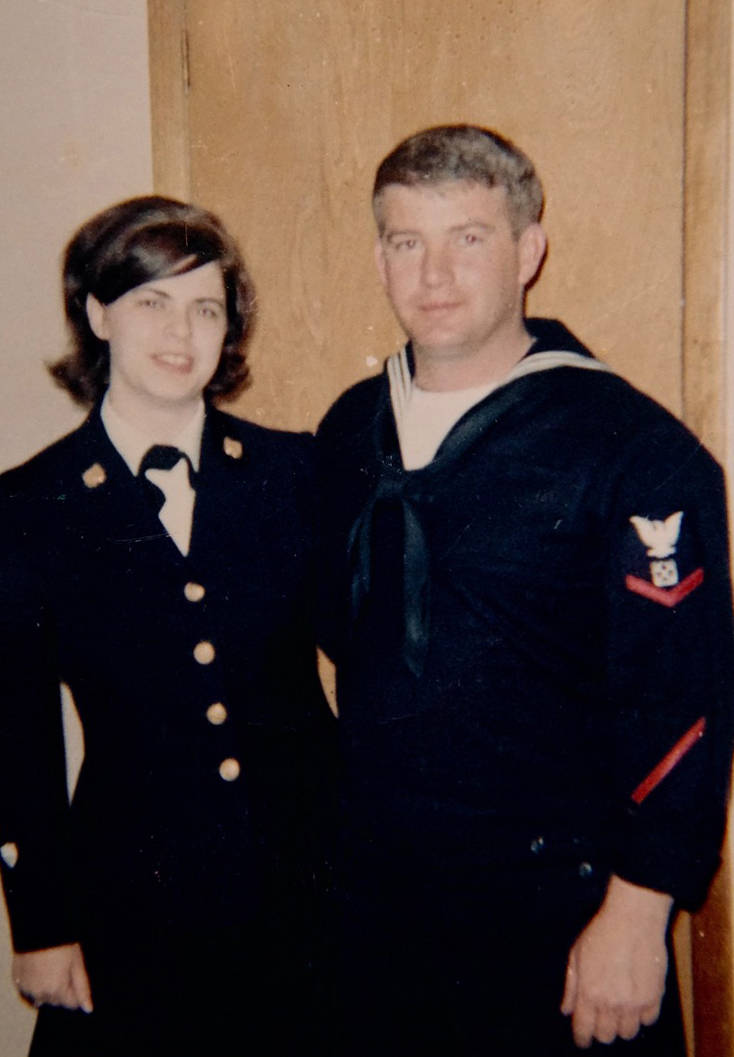Kate Mitchell’s 2018 memoir, “The Bag Lady at the End of the Road,” shares observations of what it was like to start and grow a business in the community that was initially based off of skills she had to offer as a seamstress. Commercial salmon fishermen participating in the Copper River, Cook Inlet and Bristol Bay regions needed improved gear to transfer and store salmon in their drift-boat fish holds.
It is also simply Mitchell’s story of her personal life experience, something she was encouraged to share.
“Whenever I would think of something or mention it to my children I would jot it down,” Mitchell said of what inspired her to write the book.
As she states on the back cover of the book, “My folks’ hard work and tenacity to survive and choose to be happy rubbed off, and this is my story to share.”
The introductory dimension of the book and a feature that holds a core component of the story is Mitchell’s entrance into the U.S. Coast Guard at the age of 18 in 1964 and the influence of that life-history decision on how the family eventually started the business of NOMAR in Homer.
In the first few chapters, Mitchell shares what was expected of her as one of the few women in the Coast Guard training facilities and what it was like to succeed in military preparation and commit to the lifestyle dimensions that would eventually be required. There were varied emotional dimensions: excitement and some anxiety about what training was like and some resentment about how they were occasionally perceived by civilians during the Vietnam War era.
Mitchell also shares elements of her husband, Ben’s, introduction and participation with the U.S. Coast Guard, but in her own phrasing. They did not begin in the same way — he has his own history of events that led to Coast Guard commitment. They were both originally stationed around Seattle and Puget Sound but together made arrangements to head towards Ketchikan.
“We came up in 1970 and immediately fell in love with Alaska,” Kate Mitchell said. “It was there that we began trying to figure out how we could stay in the state, long-term. We knew we would stay and retire someplace up here.”
Ketchikan was where the Mitchells started marine canvas production for tops and upholstery. It was the beginning to the rest of the story, the push of a motivated businesswoman to develop marine trade products while maintaining duty and requirements.
“I was scared, but excited,” Mitchell wrote in her book.
The Mitchells transferred their Coast Guard post to Homer when Ben had about three years remaining.
“We weren’t the first Coast Guard folks to retire here in Homer but we were some of the first!” she said.
In Ketchikan, there were three Coast Guard cutters and the station. The community of Ketchikan was supportive of the Coast Guard because the agency had been there a long time.
“In Homer, there wasn’t quite as much support around 1978,” Mitchell wrote in her book. “The town wasn’t very big and the merchants seemed generally wary about hiring Coast Guard wives because they were going to leave. But, a two-year tour really wasn’t that bad! Homer still has about a 30 percent turnover of residents these days. … These days, things are much more supportive for Coast Guard wives — that’s what 40 years shows you.”
“We were tickled that the Coast Guardsmen liked the history of the building next to NOMAR,” she wrote in the book, referring to the Homer Mercantile, formerly Walli’s and then Inglima’s Store. “… They have been great neighbors. Fine young Coast Guard people with families, an asset for Homer.”
Despite the first third of the book discussing how the Mitchells got to Homer, the remainder discusses the role of the industrial bags mentioned in the title of the book, “The Bag Lady at the End of the Road.” According to the story, it was 1982 when she was approached by a fisherman who “thought I should be able to build a bag that would work to quickly offload the catch but not mark the fish,” she wrote. And, that marks the beginning of the business that carries on today.
In addition to the explanations of business expansion and other varied sales through NOMAR, Mitchell does share many of her experiences of participating in local volunteer organizations such as the Homer Chamber of Commerce and the Homer Marine Trades Association. The book also discusses other personal transitions and strong sentiments she’s experienced over time, such as how the wall in front of NOMAR was designed. In some cases, the language she uses is brusque or salty and may not be suitable for all ages. For the most part, “The Bag Lady at the End of the Road” shares family and business pride, and as she concludes, “this is not the end, just the end of this chapter.”
Emilie Springer is a freelance writer from Homer.
• By EMILIE SPRINGER, For the Homer News

